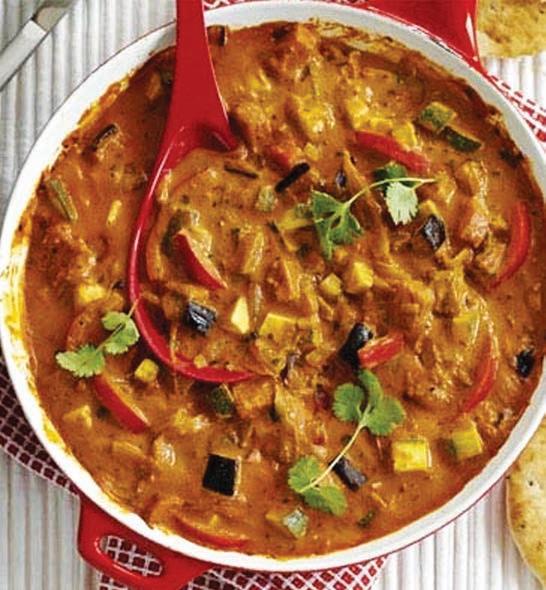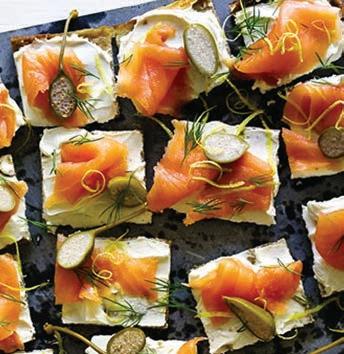
4 minute read
Food & Drink
Cheesy bean burgers
Come Dine WithMe
Advertisement

Prep: 15 mins Cook: 25 mins Plus chilling Serves: 2



is super-satisfying, vegetarian bean burger makes a cheap and easy after-work meal for all the family.
Ingredients
• 400g can butter beans , drained and rinsed • 3 tbsp olive oil • 1 small onion , nely chopped • 1 garlic clove , crushed • 75g Wensleydale cheese (or vegetarian alternative), crumbled • 1 tbsp plain our • 1 egg beaten • 50g fresh white breadcrumbs • 300g punnet cherry tomatoes • 100g bag rocket
Method STEP 1
Heat oven to 190C/170C fan/ gas 5. Tip the butter beans into a bowl and mash with a fork to form a rough purée. Set aside. Heat 1 tbsp of oil in a small frying pan and add the onion and garlic. Cook over a gentle heat for 3-4 mins, until softened.
STEP 2
Stir the onion mixture into the butter beans, along with the cheese, then season. Shape the mixture into 4 patties, cover and chill for 10 mins.
STEP 3
Put the cherry tomatoes in a small roasting tin and season with salt and pepper. Roast for 10-15 mins, until tender.
STEP 4
Tip the our, egg and breadcrumbs onto three separate plates. Roll each patty in the our, dusting o any excess, carefully roll in the egg, then nally coat in the breadcrumbs.
STEP 5
Heat remaining oil in a nonstick frying pan and add burgers. Cook for 8-10 mins, turning occasionally until golden. Drain on kitchen paper and serve with the roasted tomatoes and rocket.
400g can butter beans , drained 1 small onion , nely chopped


butter beans, along with the cheese, then season. Shape the until tender.
STEP 5

Easy vegetable curry
Prep: 15 mins Cook: 45 mins Serves: 8
is simple vegetable curry is budget-friendly and great for feeding a crowd, served with naan and rice. You can freeze batches for future midweek meals.
Ingredients
•1 large potato, diced •1 small butternut squash, peeled, deseeded and diced •1 aubergine, diced •6 tbsp tikka masala paste •3 tbsp vegetable oil •2 onions, sliced •680g-700g jar tomato passata •400g can coconut milk •2 red peppers, sliced •2 courgettes, diced •few coriander sprigs, to serve •rice or naan bread, to serve
Method STEP 1
Heat oven to 200C/180C fan/ gas 6. Toss the potato, squash and aubergine with 2 tbsp curry paste and 2 tbsp oil in a large roasting tin. Season, then roast for 30 mins.
STEP 2
Meanwhile, make the sauce. Fry the onions in the remaining oil in a large pan until softened and golden – add a splash of water if they start to dry out. Stir in the remaining curry paste, cook for 3 mins, then add the passata, coconut milk and 100ml water. Simmer for a few mins.
STEP 3
When the vegetables are roasted, tip them into the sauce with the peppers and courgettes. Simmer for 10-15 mins until tender. Scatter with coriander and serve

Top 5 health benefits of smoked salmon
A 100g serving of smoked (cold) salmon contains:
• 184 kcals / 769 kJ • 22.8g protein • 10.1g fat • 0.5g carbohydrates • 19mcg selenium • 8.9mcg vitamin D • 3.06mg salt
1. May support a healthy heart
Oily sh like salmon are rich in a type of polyunsaturated fat called omega-3 fatty acids. ese fatty acids are essential because the body cannot produce them, so we must include them regularly in our diet. e most bene cial omega-3 fatty acids, known as long chain, occur naturally in oily sh in the form of eicosapentaenoic acid (EPA) and docosahexaenoic acid (DHA). ese fatty acids are thought to contribute to a healthy heart and help maintain skin, joints and hormonal balance. In addition to heart disease, scientists are now investigating the role that sh consumption may have in protecting us against some cancers and conditions like asthma, high blood pressure, macular degeneration and rheumatoid arthritis.
2. May support brain function
We’ve long been told that sh is ‘brain food’, and there’s convincing evidence to support this. Studies suggest regular consumption reduces age-related brain loss and may improve memory – it’s the omega-3 fatty acids that are responsible for this. Studies investigating the role fatty varieties of sh play have seen bene ts for conditions like Alzheimer’s disease, depression and multiple sclerosis.
3. May be anti-in ammatory
Oily sh plays an important role in dampening the e ects of in ammation, which is key to helping manage a number of chronic diseases, including diabetes and cancer. Studies suggest that eating more oily sh like salmon could help lower levels of the markers that indicate in ammation.
4. May be protective
e pink colour of salmon comes from its rich levels of a protective antioxidant called astaxanthin. is compound has been linked to lowering the risk of heart disease by improving cholesterol and working in combination with the omega-3 fatty acids to protect the brain and nervous system.
5. May support healthy ageing
Salmon is a good source of protein, which is important for maintaining bone health, preventing muscle loss and helping the body heal and repair. Its rich astaxanthin content may help maintain skin elasticity, reduce the signs of ageing and protect the skin against UV damage.










